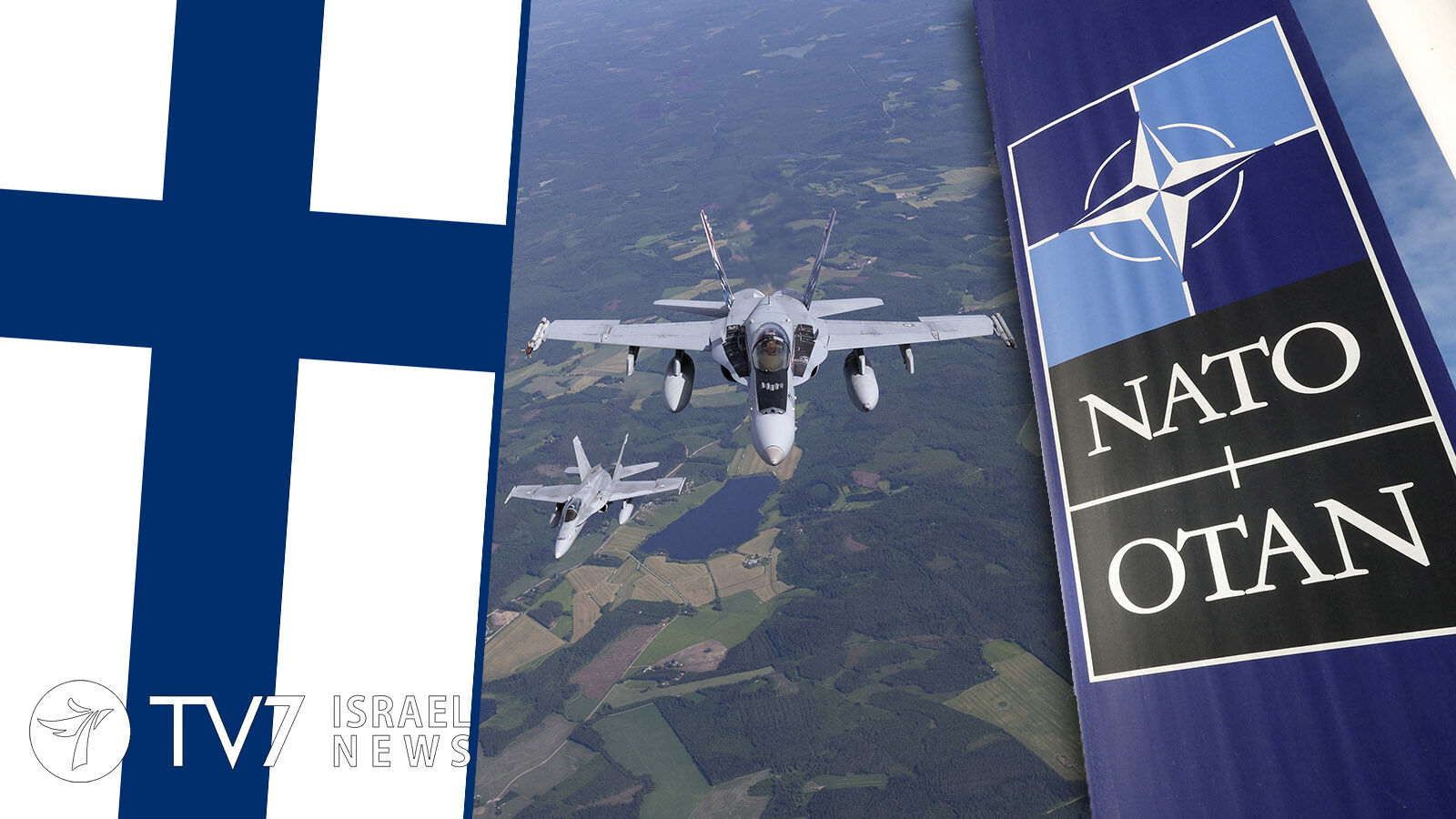The major policy shift was triggered by Russia’s invasion of Ukraine.
By Erin Viner
“Finland must apply for NATO membership without delay,” Finnish President Sauli Niinistö and Prime Minister Sanna Marin declared in a joint statement.
Finland, which shares a 1,300 km (810 mile) border and a difficult past with Russia, has gradually increased cooperation with the North Atlantic Treaty Organization (NATO) as a partner since Russia annexed Crimea in 2014.
“We hope that the national steps still needed to make this decision will be taken rapidly within the next few days,” said the Finnish leaders.
But until Russia’s invasion of Ukraine, the Nordic country had refrained from joining so that it could maintain friendly relations with its eastern neighbor.
In remarks addressed to Russian President Vladimir Putin when asked about Finland’s potential membership in NATO during a Helsinki press conference yesterday, Finland’s President said, “My response is that you caused this. Look in the mirror.”
Also yesterday, Finnish Prime Minister Marin strongly condemned Russia’s aggression in Ukraine, while hosting her Japanese counterpart Fumio Kishida. During a joint press conference, the two top diplomats expressed agreement on the need for a resolute, united response to the unfolding crisis that is threatening the rules-based global order. Marin also informed Kishida of Helsinki’s historic plan to join NATO, saying it would “strengthen” the international community that shares universal values.
The view among among the Finnish public on NATO has changed rapidly since Russia initiated what it calls a “special operation” in Ukraine that began on 24 February. Support for joining the 30-nation alliance spiked to record numbers over recent months, with the latest poll by public broadcaster YLE showing 76% of Finns approve and only 12% oppose the move. In previous years Finnish backing for membership hovered around just 25%.
The Ukraine crisis has been particularly disturbing for Finland, which fought two wars with Russia between 1939 and 1944. Helsinki managed to repel Moscow’s attempted incursion but was nevertheless forced to concede about 10% of its national territory in a subsequent peace deal.
In March, Finland’s government initiated a security policy review and delivered a report for parliament to discuss in April, while also holding discussions with all parliamentary councils to garner approval for the decision to join the Treaty. In tandem, Finnish President Niinistö and Prime Minister Marin toured NATO member states to drive up support for the move.
Finland’s rapid step is likely to encourage neighboring Sweden to undertake a similar move. Stockholm’s ruling Social Democrats are expected to decide this coming Sunday whether to overturn decades of opposition to NATO membership – which would almost certainly lead to Sweden also asking to join.
NATO Secretary General Jens Stoltenberg has previously said it would be possible to allow Finland and Sweden to join “quite quickly”.
Russia has repeatedly warned both countries against joining the alliance. As recently as 12 March, the Kremlin’s Foreign Ministry cautioned “there will be serious military and political consequences” if they do.
The speed of the Finnish decision to apply has come as a surprise to many. Most political discussions on the matter have been held behind the scenes over concern about Moscow’s reaction.
Baltic countries, however, which were once ruled from Moscow and are now members of NATO, welcomed Finland’s announcement.
“Finland decided to join the Alliance. NATO is about to get stronger. Baltics about to get safer,” Lithuanian Foreign Minister Gabrielius Landsbergis commented.
